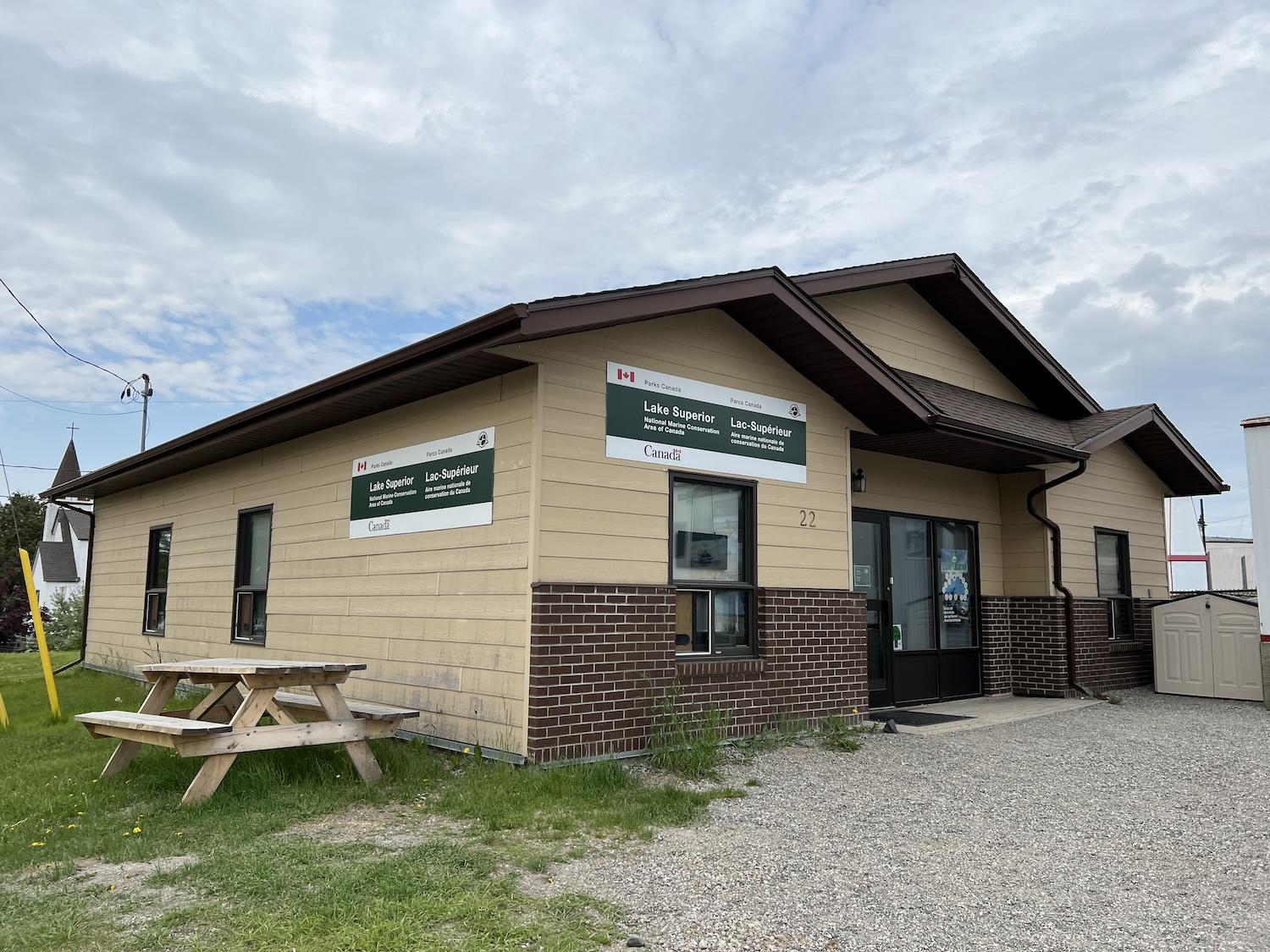
A June 2023 file photo shows the existing administration and visitor center in Nipigon for the Lake Superior National Marine Conservation Area/Jennifer Bain
As the Red Rock Indian Band protested what it feels have been repeated indignities to ancestral remains in northwestern Ontario, Parks Canada issued a statement saying it respects the band’s right to peaceful protest and recognizes that the discovery has been “painful and distressing.”
Parks Canada began excavation on a new administration and visitor center for Lake Superior National Marine Conservation Area in Nipigon in May, after several years of design, planning and consultation on the $27 million project with the band — an Ojibwe First Nation in northwestern Ontario — and other Indigenous communities.
During excavation, pre-contact Indigenous ancestral were uncovered and all work ceased. The band said that four Indigenous ancestors were uncovered but the remains are incomplete because burial land was heavily disturbed and 150 loads of earth were distributed to locations throughout the Township of Nipigon.
“Had someone been there who is trained to watch for remains, we very likely would have our ancestors intact instead of taking part in this morbid scavenger hunt where we are searching through loads and loads of earth,” Chief Allan Odawa Jr. said in a statement about the June 21 day of action. “I can confidently say, this would never happen with a settler cemetery. We need to see major legislative changes that provide us the rights to protect our ancestors, regardless of who currently occupies the land.”
Parks Canada said it remains “committed to ongoing efforts to address this situation with the utmost respect and sensitivity.”
Archaeological assessments on the property — including more than 80 archeological test pits — were reviewed as part of the impact assessment requirements. For soils that were outside of any previously disturbed areas, a Parks Canada representative with relevant expertise was on site throughout the removal of vegetation to monitor for archeological concerns.
Parks Canada also created a “chance find protocol” to ensure that any chance finds of human remains or significant artifacts would spark an immediate work stoppage until the situation was assessed.
Throughout the excavation, Parks Canada says that it diligently followed all protocols, including the agency’s “Cultural Resource Management Policy and Management Directive on Human Remains.” Since halting construction, it says it has worked with the band, local authorities and terrestrial archeology professionals.
“Parks Canada understands that the uncovering of remains could be triggering for community members, and has made every effort to act with the utmost caution and respect,” the release said. “After the first chance finding, which turned out to be an animal bone, Parks Canada worked with Red Rock Indian Band to hire an environmental monitor from their community for the remainder of the excavation and project.”
Noting that it’s beyond their jurisdiction, Parks Canada has also advocated for the return of materials from private properties and continues to work with landowners and provincial departments to locate and return all ancestral remains. "We sincerely recognize the pain this unfortunate situation has caused, and it is our shared goal for the remains to be returned and honoured as per the community’s wishes.”
Parks Canada is assessing alternate locations for the administration and visitor center.

 Support Essential Coverage of Essential Places
Support Essential Coverage of Essential Places






